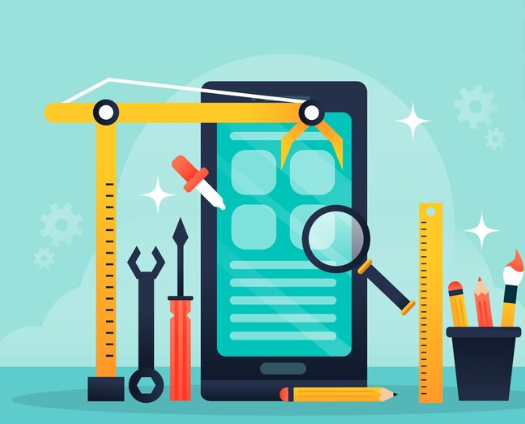Top AI Tools for Business Automation in 2025

Top AI Tools for Business Automation in 2025
Artificial Intelligence (AI) has fundamentally transformed the business landscape, and in 2025, it continues to be at the forefront of innovation and efficiency. With an ever-growing arsenal of AI tools designed for automation, businesses are leveraging this technology to streamline processes, reduce costs, and improve productivity. Whether you’re a startup, an SME, or a large corporation, the right AI automation tools can offer a significant competitive edge. This comprehensive guide explores the top AI tools for business automation in 2025 across different functions such as marketing, sales, customer service, operations, HR, and more.
Why Business Automation with AI Matters in 2025
The adoption of AI-powered automation tools allows businesses to:
- Reduce manual workloads
- Improve accuracy and efficiency
- Enhance customer experiences
- Enable predictive decision-making
- Optimize resource allocation
- Drive revenue growth
As AI continues to evolve, these tools are becoming more intelligent, user-friendly, and integrated into core business operations.
Top AI Tools for Business Automation in 2025
1. UiPath (Robotic Process Automation)
UiPath remains a leader in robotic process automation (RPA). In 2025, it offers advanced AI integration, enabling bots to understand context and perform complex tasks such as document processing, data entry, and system integration.
Key Features:
- Drag-and-drop automation builder
- AI-powered document understanding
- Cloud-based and on-premises options
- Strong community and marketplace
Use Cases:
- Automating invoices and payroll
- Employee onboarding
- IT service management
2. Zapier (Workflow Automation)
Zapier connects over 6,000 apps, allowing users to automate workflows without any coding. In 2025, Zapier’s AI upgrade includes smart trigger suggestions and data manipulation through natural language.
Key Features:
- AI-powered Zaps (automations)
- Multi-step workflows
- Custom logic (if/then conditions)
- Integration with AI models like GPT-4/5
Use Cases:
- CRM updates
- Email marketing triggers
- Data synchronization
3. Jasper AI (Content Marketing Automation)
Jasper AI has become a go-to content generation platform in 2025. Powered by advanced LLMs, it helps marketers automate content creation at scale while maintaining brand voice and consistency.
Key Features:
- AI copywriting assistant
- Templates for ads, blogs, emails, and more
- Tone customization
- Brand memory and workflows
Use Cases:
- Social media content
- Blog writing
- Ad copy generation
4. HubSpot AI (Sales and Marketing Automation)
HubSpot integrates AI throughout its CRM platform. Its 2025 version includes predictive analytics, automated email sequences, and chatbot enhancements for a seamless customer journey.
Key Features:
- AI-powered email personalization
- Predictive lead scoring
- Sales forecasting
- AI chatbot for live chat
Use Cases:
- Automated sales outreach
- Marketing segmentation
- Customer support automation
5. Tidio (Customer Support Automation)
Tidio combines AI chatbots with live chat and omnichannel messaging. In 2025, Tidio’s AI engine supports natural conversations, sentiment detection, and multilingual support.
Key Features:
- AI chatbot builder
- Integration with eCommerce platforms
- NLP-based intent recognition
- Proactive messaging
Use Cases:
- 24/7 customer support
- Lead generation
- Order tracking assistance
6. Notion AI (Knowledge Management Automation)
Notion AI helps teams write, organize, and manage content more efficiently. In 2025, it has expanded its capabilities to include meeting note summaries, automatic task generation, and project insights.
Key Features:
- AI writing assistant
- Task auto-generation
- Meeting transcription and summarization
- Real-time collaboration
Use Cases:
- Internal documentation
- Project management
- Team collaboration
7. ClickUp AI (Project Management Automation)
ClickUp AI enhances productivity by automating repetitive project management tasks. It offers AI-powered suggestions, time tracking insights, and document creation.
Key Features:
- AI task summaries
- Priority recommendations
- Auto-generated meeting recaps
- Workload forecasting
Use Cases:
- Project planning
- Task management
- Performance monitoring
8. Pega Systems (End-to-End Business Process Automation)
Pega provides AI-driven decisioning and workflow automation for enterprises. Its 2025 platform integrates low-code tools with intelligent automation and customer engagement.
Key Features:
- Intelligent decision hub
- Adaptive analytics
- Case management workflows
- Low-code app development
Use Cases:
- Financial services operations
- Healthcare claims processing
- Insurance underwriting automation
9. Grammarly Business (Communication Automation)
Grammarly Business now goes beyond grammar checking, offering tone analysis, clarity suggestions, and integration with workplace platforms.
Key Features:
- AI writing assistant for teams
- Brand tone customization
- Enterprise-level dashboards
- Integration with Slack, MS Office, Google Docs
Use Cases:
- Client communications
- Internal documentation
- Marketing content quality control
10. Eightfold AI (HR & Talent Management Automation)
Eightfold AI uses deep learning to optimize hiring, internal mobility, and workforce planning. In 2025, it includes skills intelligence and DEI compliance tools.
Key Features:
- AI resume screening
- Talent intelligence platform
- DEI analytics
- Personalized career pathing
Use Cases:
- Recruitment automation
- Skills gap analysis
- Succession planning
Benefits of Using AI for Business Automation
- Operational Efficiency: Reduces time spent on manual processes
- Cost Savings: Lowers overhead and labor costs
- Data-Driven Insights: Helps in making accurate, predictive decisions
- Customer Satisfaction: Enhances response times and personalization
- Employee Productivity: Frees up teams to focus on creative and strategic work
Challenges and Considerations
While AI tools offer immense potential, businesses must consider:
- Data privacy & compliance (e.g., GDPR, HIPAA)
- Integration with legacy systems
- Initial implementation costs
- Employee training and change management
Future Trends in AI-Powered Business Automation
- Hyper-Personalization using real-time behavior analytics
- Generative AI for creative workflows
- Autonomous agents for decision-making
- Voice-activated business operations
- Democratization of AI through no-code platforms
Final Thoughts
In 2025, AI tools for business automation are more powerful, accessible, and essential than ever. Companies that leverage these technologies not only gain operational advantages but also position themselves as forward-thinking and adaptable. Whether you’re automating your marketing, HR, sales, or customer service workflows, there’s an AI tool designed to meet your unique needs. Now is the time to embrace the future of automation.
FAQs
Q1: Are AI automation tools expensive?
Some tools offer freemium models, while enterprise-level solutions may require investment. However, ROI tends to justify the cost in most cases.
Q2: Do I need technical skills to use AI automation tools?
Many tools are no-code or low-code, designed for non-technical users. Training may be required for advanced implementations.
Q3: Is it safe to use AI tools for sensitive data?
Yes, but always check for compliance certifications, encryption standards, and data handling policies.
Q4: Which industry benefits the most from AI automation?
Finance, healthcare, eCommerce, and customer service-heavy industries see the highest impact.
Q5: How do I choose the best AI automation tool?
Assess your business needs, integration requirements, scalability, support, and user reviews before making a decision.



